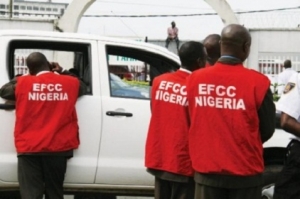
The anti-graft agency was responding to reactions that trailed the freezing of accounts of suspects that were investigated or currently being investigated.
A statement by the Head, Media and Publicity of the EFCC, Wilson Uwujaren, on Monday stressed the need to explain the reason behind the actions in order to prevent misinformation.
“Indeed, Section 34 (1) of the EFCC Act 2004 empowers the Commission to freeze any account suspected of being used for financial crimes.
“The section stipulates that, the Chairman of the Commission or any officer authorised by him may, if satisfied that the money in the account of a person is made through the commission of an offence under this Act, or any enactment specified under Section 6(2) (a)-(f) of this Act, apply to the Court ex-parte for power to issue or instruct a bank examiner or such other appropriate authority to freeze the account,” the statement read.
Incidental To Investigation
The agency also noted that similar provision in the Money Laundering Prohibition Act also allowed the EFCC Chairman or his representatives to place a stop order on any account or transaction suspected to be involved in any crime.
“The intendment of these provisions is to ensure that the Commission safeguards suspected proceeds of crime pending the completion of its investigation.
“It is without prejudice to the social standing of the holder of such accounts or whether they are individual, corporate or government accounts,” the statement added.
The anti-graft agency maintained that the freezing orders were incidental to investigation and doing otherwise would jeopardise the prospects of recovering stolen assets.




